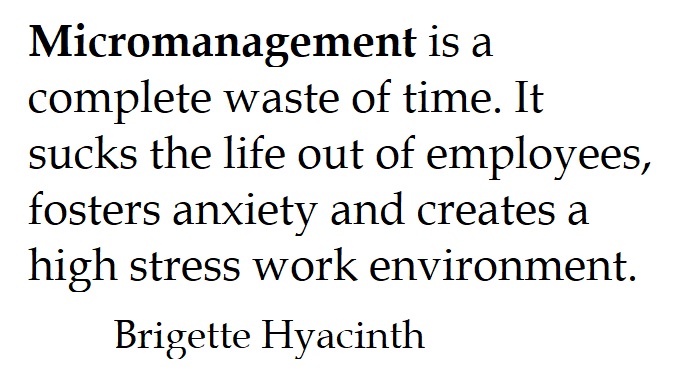[30 June 2021] Day 30 of the nrp* in Malaysia
“Hey, you wrote about how important it is to empower people. Can you tell us how to do it?” Someone texted me when he read my previous post.
I agree, it will certainly be more helpful. Since these are soundbites, let me break it down.
The first tip is to look at why there’s room for improvement in your organisation. Not why it is needed — that has already been established yesterday. But what are the stumbling blocks that we need to overcome.
Is there a lack of awareness? Is it because this has always been the way it is done? Or you don’t think your employees are capable enough? You don’t trust them? Or deep down, is there a fear of empowerment? Only you can answer this honestly.
Start by removing these barriers. If you want your employees to go the extra mile, it is not about going out to look for new ones. It’s about creating an environment in which your current employees feel safe to do it.
Stop fearing; Start trusting
I have met managers who fear that when their staff do better, their position will be threaten. So they withhold information and give half-instructions just so that they can look good in comparison. I had one such manager. Each time he gives me a task, he would always make sure it is not complete. So, I will always fail in front of the bigger bosses. But he forgot one thing — I can read. After I realised what was going on, I always did my research and found the missing piece of information.
So what happened to me after awhile? I got better at my work and was given higher responsibilities eventually. What happened to him? He stayed put and continued to complain that his team members are always making mistakes, making him look bad. And he ‘always had to come in to rescue them‘. He certainly looked at them as his competitor. What he didn’t realise was that the bigger bosses looks at the performance of his team as a reflection of his leadership. So, the strategy of tripping your own team members is counter-productive. I feel sad for him. He was a smart person,a very good developer but his fear worked against him.
Then there’s the business owner who feel that once his employees are empowered, they will leave and compete with him. Yes, that happens all the time. It happens whether you do it or not. The only question I have is “Do you prefer to empower them and they leave, or do you prefer that they remain as ineffective and stay?” Some may prefer the latter. It’s totally acceptable if they are happy with their business growth rate and the amount of energy they have to put in themselves. Employees who want to thrive will still leave eventually because the environment will be too stifling for them. Either they will leave to help your competitor or they will start their own business to compete with you.
Here’s one idea for those in this position: Instead of looking at people who leave as competition, look for ways to collaborate. This is how you can turn a win-lose situation into a win-win. My friend’s boss did that — he invested in my friend’s new business.
Start by trusting. It is an investment into the future.
(Read more about empowerment)
(*nrp stands for National Recovery Plan.)
(Feature Image by Gerd Altmann from Pixabay.)
About the Author: Gina Phan is a consultant and trainer with Zinfinity Consulting. She currently conducts courses in workplace performance skills. Click here to contact her, follow her on Facebook or connect with her on Linkedin.
#leadership #servantleadership #empower #empowermenttips
#trainergina #ginaphan #gp






















